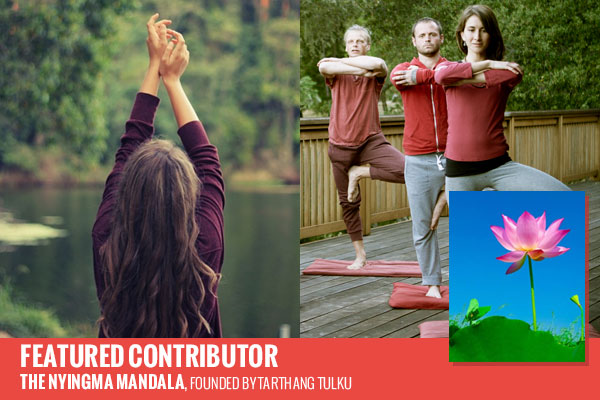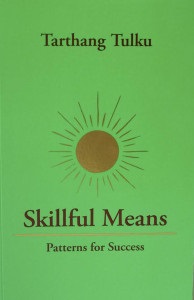
Experience Life in a Buddhist Community and Improve Your Practice
- By The Nyingma Mandala --
- 10 May 2016 --

Buddhist summer residential training program in Berkeley, CA combines study, practice, and service.
In the heart of downtown Berkeley, CA a small community of Western Tibetan Buddhist practitioners is offering anyone interested the chance to participate in a residential work-study program that explores what it’s like to live in a Buddhist community life in America today. They are looking for people who could imagine making such a way of life their own—no previous experience required.
Experience Life in a Buddhist Community and Improve Your Practice[/tweetthis]
The Nyingma Mandala of Organizations was founded more than 40 years ago by Tarthang Tulku, one of the last lamas to receive a full traditional education in Tibet before being forced into exile. Since then, the organizations, staffed entirely by volunteers, have focused on publishing, printing, and giving away more than 4 million sacred books in Tibetan to refugees and inside Tibet, as well as producing ritual art. They have also established centers in five countries, built seven temples, cast hundreds of life-size statues in bronze, and published over a hundred books in English. They continue to explore innovative approaches to bringing Buddhist teachings to the West. In all, they operate more than 20 different organizations.
Under the guidance of their founding lama, the Nyingma community has emphasized work as spiritual practice, an approach they call Skillful Means. It relies on challenging personal limits through the demands that work inevitably makes. This was an innovation born of necessity, for they feared that Tibetan Buddhism might cease to exist. But it also fits well with the Western mindset, which appreciates getting results and understands that work that goes beyond the ego can be life-transforming.
The new residential training program, which starts this summer, combines study, practice, and service. It will introduce students to a four-part vision that guides the community:
- Integrate spiritual growth with work that gets results
- Put study and practice into action
- Serve Buddhism and support Buddhist practitioners
- Work for the benefit of all beings
Participants follow a rigorous schedule while exploring what it means to live in an intentional community. Sharing their daily lives with like-minded peers, they devote their time to serving and deepening their understanding of Buddhist teachings while developing what they see as the truest form of friendship.
The Mandala Training Program website describes the key elements of the program as follows:
- You will spend on average about 30-35 hours a week working on community projects, and about 6-10 hours a week doing formal practice, with another 10-20 hours for personal study and practice.
- We focus on understanding how the mind works and on integrating body, mind, and spirit. We do not base our practice on traditional elements such as empowerments or initiations.
- Our projects and our life in the community blend traditional elements with a secular approach. We offer instruction in Tibetan yoga adapted for the West, Nyingma psychology, and new teachings specially designed for the contemporary world.
Training the #mind not to be trained ?? #mindfulness #focus #mandala #vsco #vscocam… https://t.co/RdlCfYmxtL
— Clau (@Droshaf) May 1, 2016

If you think you might be interested in becoming a part of this new generation of students and practitioners, you can learn more about the program, and fill out an application form here.



















